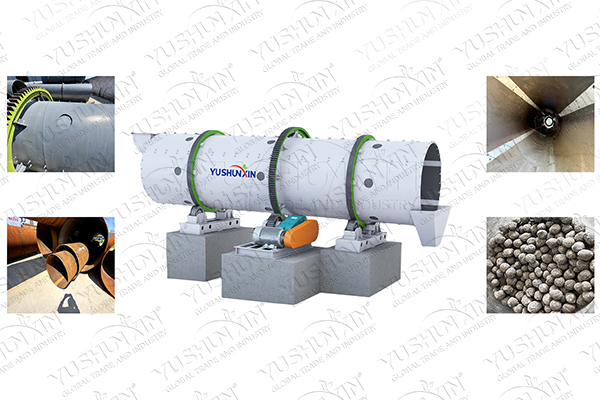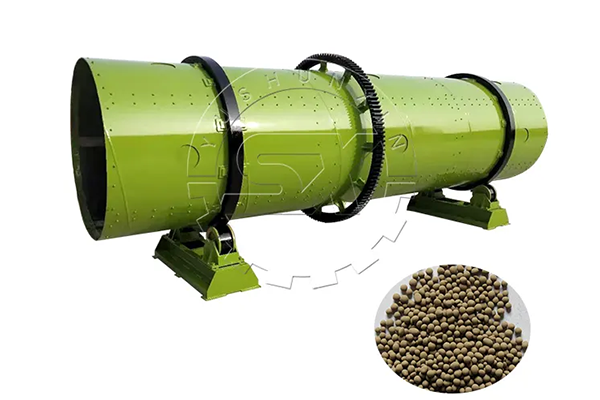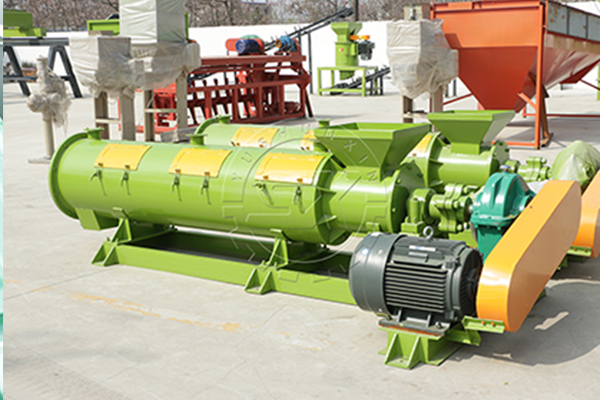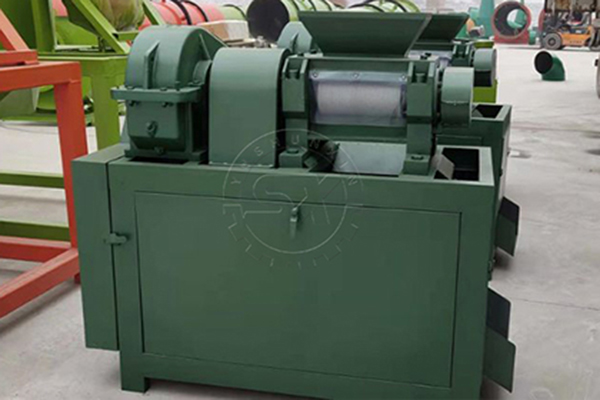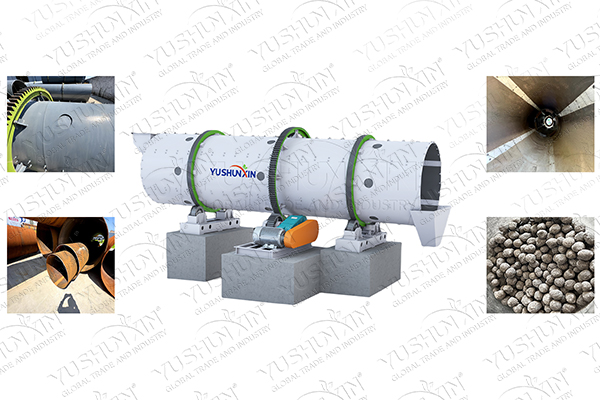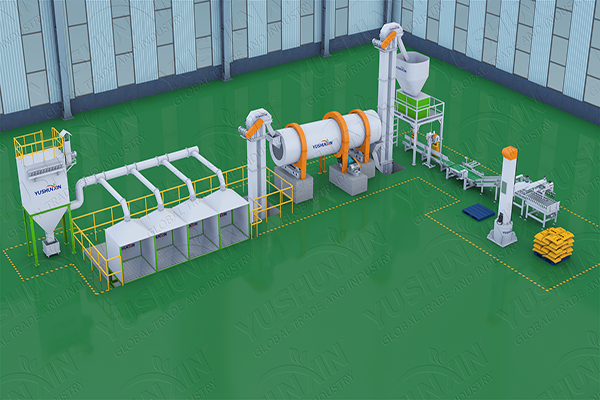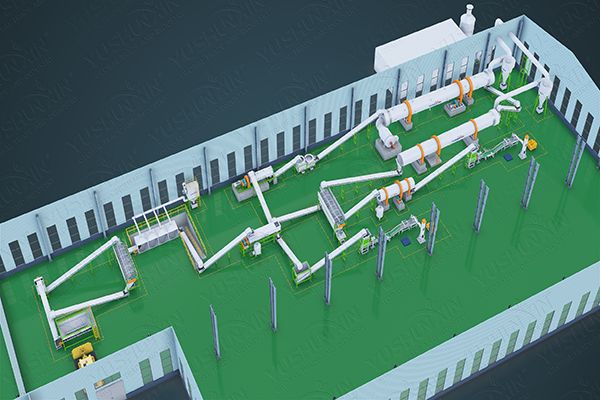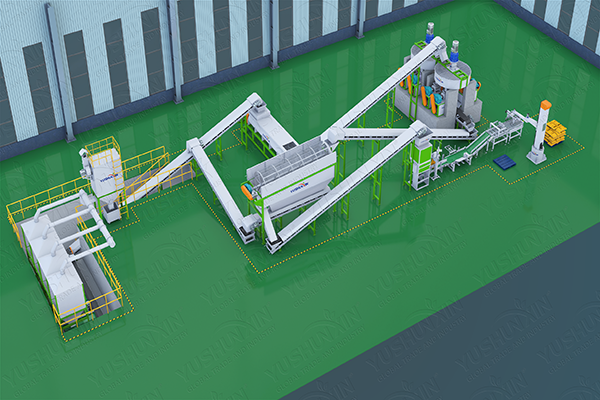Establishing an NPK granulator plant is one of the most efficient ways to produce high-value fertilizer for large-scale agriculture. Whether you want 1–5 t/h or 10–30 t/h output, choosing the right NPK fertilizer manufacturing process and granulation machine directly affects production cost, pellet quality, and energy consumption. In YUSHUNXIN, we can offer you a suitable NPK granulation line based on capacity and budget. If you are interested, feel free to consult us!
How to produce NPK fertilizer?
Before NPK granulation
After NPK granulation
These are just the basic steps of NPK fertilizer granulation. If you want to improve the quality of NPK fertilizer pellets, you can use a fertilizer polishing and a coating machine. If you have any problems, you can contact us, and we will provide you with our best solutions.
-
Choosing a NPK Fertilizer Granulation Machine Based On Different Production Scale.
If you plan to produce 1–5 t/h, a disc granulator is often the best fit. It works with flexible formulas and forms pellets through rolling and layering. Its price ranges from $1,000–$16,000, which makes it ideal for start-up NPK fertilizer plants.
For medium and large producers, the rotary drum granulator supports 1–30 t/h continuous production. It handles high-output NPK fertilizer manufacturing and offers strong pellet density. The price ranges from $7,000–$70,000, depending on length, diameter, and material grade.
-
Choosing a NPK Fertilizer Granulator Based On Your Budget.
If you want to control investment while keeping efficiency high, the stirring tooth fertilizer granulator is a strong option. It processes a wide range of NPK formulas and completes one batch in five minutes. The price ranges from $7,000–$25,000 and suits producers upgrading from small to medium scale.
For low-budget projects, many clients select the double roller extrusion granulator. It costs $3,000–$12,000 and forms pellets through mechanical extrusion. Because it does not require drying or cooling, you reduce energy consumption and shorten your NPK fertilizer production process.
What is the cost of NPK granulator plant?
The cost of an NPK granulation plant usually ranges from $100,000 to $300,000, depending on your production capacity and the type of NPK granulation equipment you choose. Small plants with 1–5 t/h output use pan pelletizer or double roller granulators, which keep the total investment toward the lower end of the range. Medium and large plants with 10–30 t/h output require rotary drum granulation machine, which increase equipment and infrastructure costs.
YUSHUNXIN helps you plan the most economical NPK granulator factory setup based on your capacity, local raw materials, and target formulas. Share your budget and production goals, and we will design a complete NPK fertilizer production line with the best cost-performance ratio.
What Materials Can SX NPK Fertilizer Pelletizers Process?
SX NPK granulator plant can handle a wide range of raw materials used in modern NPK fertilizer production. These machines work with both single-nutrient powders and compound nutrient blends, helping you create stable and high-value NPK pellets.
Our NPK granulators process most nitrogen-rich powders, including: Urea, Ammonium sulfate (AS), Ammonium nitrate (AN), Ammonium chloride (AC), Calcium ammonium nitrate (CAN).
These materials offer strong solubility and produce uniform granules in disc, drum, and double roller pelletizers.
SX granulation equipment handles both chemical and mineral-based P inputs, such as: Monoammonium phosphate (MAP), Diammonium phosphate (DAP), Single superphosphate (SSP), Triple superphosphate (TSP), Rock phosphate powder (after crushing)
These P materials combine easily with N and K sources during mixing and pelletizing.
Our NPK pelletizer machines also support a range of K fertilizers: Potassium chloride (KCl), Potassium sulfate (K₂SO₄), SOP/SSOP, Potassium magnesium sulfate
These materials improve granule hardness and enhance the nutrient balance of the final NPK product.
To improve pellet stability or create specialty NPK formulas, SX machines also process: Zeolite powder, Bentonite, Dolomite, Gypsum, Humic acid powder.
These additives help control moisture, reduce caking, and increase granule strength.
If fertilizer manufacturers want to produce specialty NPK pellets, SX granulators can also process: Composted poultry manure powder, Biogas residue powder, Seaweed extract powder, Amino acid powder.
Our disc, drum, and new-type organic fertilizer granulators handle these mixed materials well, especially when you want to create value-added NPK blends.

